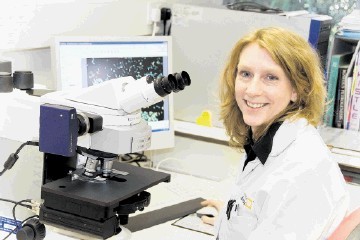
Quality and safety services firm Intertek is investing $200,000 (£125,000) in phase two of a groundbreaking five-year oilfield bugs research project at the University of Calgary.
This marks a continuation of support by the Aberdeen company that now totals $400,000 (£250,000) over 10 years for research into three major areas of petroleum microbiology.
Essentially, the focus is reservoir souring due to bacteria, corrosion control with biological treatment and microbial enhanced oil recovery (MEOR). World authority Professor Gerrit Voordouw is “chair holder” of the Calgary programme.
Using high-end technology and cutting-edge microbiology methods, and analytical data and support from Intertek, the research is at the forefront of petroleum microbiology and the project is pioneering in tackling these worldwide issues.
According to Intertek, which is currently investing in new headquarters for its energy services teams to integrate under one roof at Aberdeen’s Excel Centre, Bridge of Don (this includes £4.5million on state-of-the-art laboratories and research, development, testing and training facilities), the insight to reservoir souring and the implications the research may have for industry are significant.
The company says this research will particularly benefit clients who are exploring new reservoirs and addressing quality issues caused by microbial activity in existing reservoirs.
Heike Hoffmann, consultant microbiologist at Intertek Commercial Microbiology, said: “A significant proportion of microorganisms are still not that well understood.
“The research will create new insights into the problems commonly faced due to bacteria. It is widely accepted that nitrates halt reservoir souring but it is not fully understood how. This study will look at the mechanism of reservoir souring more deeply and allow us to develop the reservoir chemistry testing and evaluation programmes we provide to clients.”
The research supported by Intertek forms part of the UK’s Natural Sciences and Engineering Research Council (NSERC) Industrial Research Chairs programme, which aims to unite top university researchers and companies to produce findings which will help advance understanding of how microorganisms can work both for and against the industry.